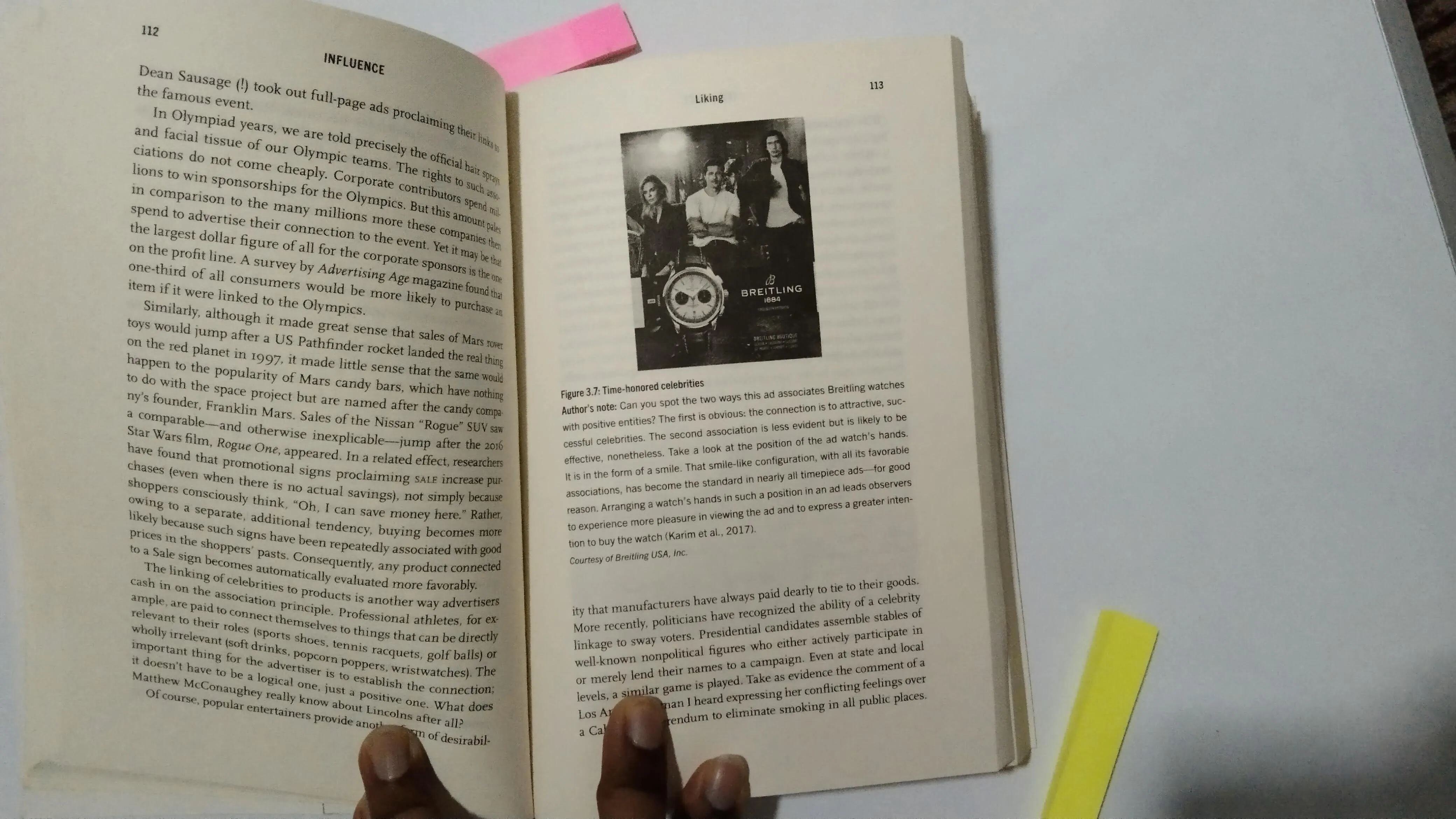Influence: The Psychology of Persuasion
by Robert Cialdini
Explores the psychology of why people say YES and how to apply these principles to be a more effective persuader in both personal and professional settings.



"The principle of social proof states that one means we use to determine what is correct is to find out what other people think is correct."
- Robert Cialdini, Influence: The Psychology of Persuasion
My Review:
Influence: The Psychology of Persuasion by Robert Cialdini is a fantastic read that delves into the intricacies of how people can be influenced and persuaded. The book is well-written and easy to understand, making it a great resource for anyone looking to improve their persuasion skills.
One of the key takeaways from the book is that persuasion is not just about using logical arguments, but also about understanding and manipulating the various social and psychological factors that influence decision-making. Cialdini does an excellent job of breaking down these factors and providing practical examples of how they can be applied in real-world situations.
Another great aspect of the book is that Cialdini provides a wealth of research and studies to back up his claims. This makes the book feel very credible and trustworthy, and it's clear that the author has put a lot of effort into ensuring that the information provided is accurate and up-to-date.
In summary, Influence: The Psychology of Persuasion is a must-read for anyone interested in understanding how people can be influenced and persuaded. It's a well-written, informative and research-backed book that provides a wealth of practical advice and examples.
Some of the lessons I learned from this book are:
- The principle of reciprocation: people tend to return a favor, which can be used to build a sense of obligation and persuade them to comply with a request
- The principle of commitment and consistency: once people make a commitment, they tend to remain consistent with it, which can be used to persuade them to make larger commitments
- The principle of social proof: people tend to follow the actions of others, which can be used to create a sense of social proof and persuade them to comply with a request
- The principle of authority: people tend to obey authority figures, which can be used to establish credibility and persuade them to comply with a request
- The principle of liking: people tend to comply with requests from people they like, which can be used to establish rapport and persuade them to comply with a request
- The principle of scarcity: people tend to value things that are scarce, which can be used to create a sense of urgency and persuade them to comply with a request
- The importance of understanding the psychology of persuasion: to be an effective persuader, it is essential to understand the psychological factors that influence decision-making
- The importance of building trust: building trust is key to persuasion, as people are more likely to comply with requests from people they trust
- The importance of being aware of the potential for unethical persuasion: while persuasion can be a powerful tool, it's important to be aware of the potential for it to be used in unethical ways
- The importance of being aware of your own biases: it's important to be aware of your own biases when trying to persuade others, as they can influence the way you present information and arguments